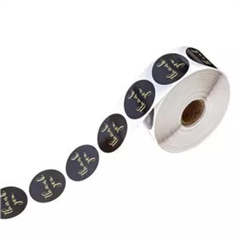Many companies and brands around the world have taken corporate responsibility seriously by implementing initiatives to tackle plastic bag waste. They are working to reduce plastic bag usage, promote sustainability, and contribute to environmental conservation efforts. Here are some notable examples of brands and businesses that have been actively addressing plastic bag waste:
- IKEA: IKEA, the Swedish furniture retailer, has phased out single-use plastic bags in its stores and replaced them with reusable and affordable FRAKTA bags made from recycled materials. They have also committed to making their entire product range more sustainable by using renewable and recycled materials.
- Patagonia: Patagonia, the outdoor clothing and gear company, encourages customers to bring their reusable bags by offering a merchandise credit when they do so. They have a strong commitment to reducing plastic pollution and actively engage in environmental activism.
- Adidas: Adidas, the global sportswear brand, has pledged to phase out plastic bags in its retail stores and replace them with paper bags and reusable tote bags. They have also committed to using more sustainable materials in their products.
- Lush: Lush, the cosmetics company, encourages customers to bring their own reusable bags and containers when purchasing their products. They have also introduced a “Knot Wraps” initiative, offering fabric wraps that can be used instead of traditional packaging.
- Starbucks: Starbucks has been working to reduce plastic bag waste by offering reusable cups and encouraging customers to bring their own. They have also set goals to make their stores more sustainable by minimizing single-use plastics.
- H&M: H&M, the fashion retailer, has committed to making its packaging more sustainable, including reducing plastic bag usage. They offer reusable shopping bags and promote the use of eco-friendly materials in their products.
- Whole Foods Market: Whole Foods has eliminated plastic bags in its stores and provides customers with paper bags or encourages the use of reusable bags. They also offer discounts to customers who bring their reusable bags.
- Walmart: Walmart, one of the world’s largest retailers, has been working to reduce plastic waste by offering reusable bags, promoting recycling, and working with suppliers to minimize plastic packaging.
- Tiffany & Co.: Tiffany & Co., the luxury jewelry brand, has been using paper bags and packaging for its products instead of plastic. They prioritize sustainability and responsible sourcing.
- Kroger: Kroger, a major supermarket chain, has phased out single-use plastic bags in its stores and is encouraging customers to bring reusable bags. They also have a commitment to reducing food and plastic waste.
- Target: Target has introduced reusable shopping bags and encouraged customers to use them. They are also working on making their supply chain more sustainable and reducing packaging waste.
These are just a few examples of brands and businesses that are taking corporate responsibility seriously by addressing plastic bag waste and promoting sustainability. Their efforts demonstrate that companies can play a significant role in reducing plastic pollution and encouraging responsible consumer behavior.








